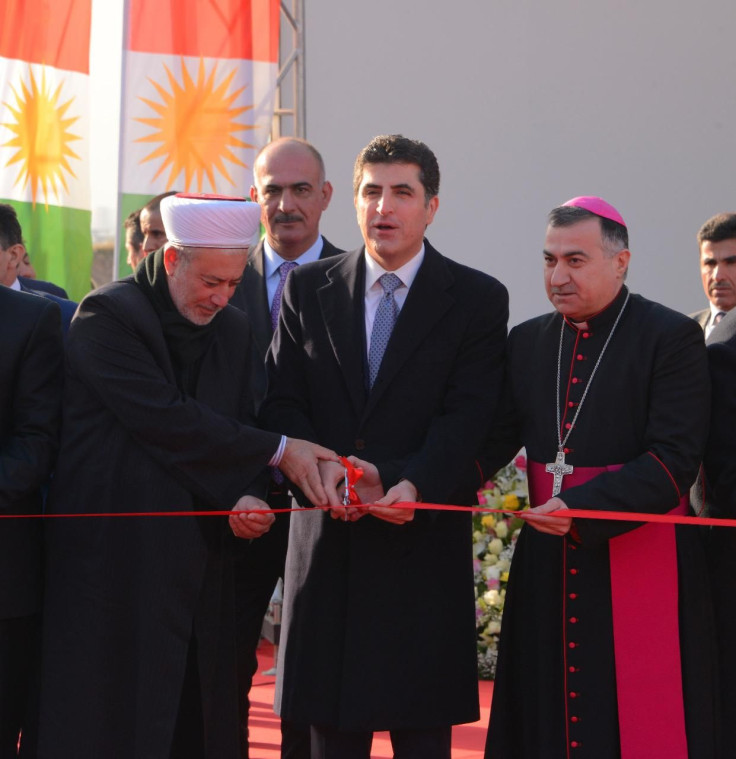KRG President Nechirvan Barzani Sets About Implementing Ambitious Reforms in Iraqi Kurdistan

After years of chaos, instability and economic hardship, brought about by ISIS’ meteoric rise in Syria and Iraq, and the dispute over independence with the Iraqi federal government, KRG President Nechirvan Barzani is ramping up efforts to deliver reform in the autonomous region in northern Iraq.
President Barzani assumed his post in June 2019 and previously served as prime minister, leading Iraqi Kurdistan though turbulent times.
Nechirvan Barzani thus became the most senior official in the KRG, and delicately managed rising tensions with Bagdad over the 2017 Independence Referendum. Widescale military confrontation between Kurdistan Peshmerga forces and the Iraqi military, backed by various paramilitary groups, almost ensued, but the then-PM opted for dialogue and reconciliation to avert such a conflict.
His diplomatic approach ultimately proved successful, with the Iraqi federal government and other regional powers gradually scaling back and lifting their economic blockade on the autonomous Kurdish region in northern Iraq.
Now, President Barzani is looking to build on his success and utilise his experience in politics to propel Iraqi Kurdistan forward.
Specifically, the KRG president is committed to improving Iraqi Kurdistan’s relations with its neighbours and the broader international community.
“Our new president will strive to foster closer relations with all stakeholders in Iraqi Kurdistan and our global partners,” the KRG president’s media office said.
As commander-in-chief, President Nechirvan Barzani is looking to unify and reform the Peshmerga, which played a key role in liberating large swathes of territory and major cities from ISIS.
“Unifying and improving the Peshmerga is a very important goal for the president. The Peshmerga demonstrated its importance to security in Iraqi Kurdistan and the region during its campaign against ISIS, and more needs to be done to boost its combat capabilities. We look forward to working closely with our partners to achieve this,” the president’s office added.
"President Barzani’s vision is to build a peaceful, progressive, modern and tolerant society deeply inspired by his personal values and beliefs in pluralism in political life, and peaceful coexistence among all the religious and ethnic communities within the Region,” according to the KRG president’s media office.
In a step towards achieving this vision, President Barzani will write Iraqi Kurdistan’s first ever constitution while continuing to watch over the government and parliament.
Prior to the turmoil Iraqi Kurdistan has faced – including adverse price movements in the world oil market, the rise of ISIS in the Middle East, and the budget dispute with Baghdad – the autonomous region enjoyed impressive economic growth and development while Nechirvan Barzani served as the PM.
For example, in 1992 the estimated rate of unemployment stood at 60% and by 2014 the rate was slashed to 7.1%, according to KRG data, thanks to the tapping of Iraqi Kurdistan’s energy resources and the broader development of its economy. However, the aforementioned turmoil pushed it up to 13.5% in 2015, but Barzani reduced it to 9% in 2018 and even further in 2019 before becoming president.
In terms of literacy, the rate rose from just 66% in 2000 to 86% by 2016, with hundreds of thousands benefitting from an initiative pushed by Nechirvan Barzani to improve citizens’ access to education.
Furthermore, in 1992 there were just three educational institutions and one university in Iraqi Kurdistan. By 2016 this had risen to 24 education institutions, 15 public universities and 15 private universities, according to the Ministry of Planning.
There’s a similar trend in healthcare: at the turn of the century there were just 26 public hospitals, but by 2017, following a big push by the KRG under PM Barzani, there were 76 public hospitals, 45 private facilities and 967 public clinics.
Following his recent election to the presidency, Nechirvan Barzani delivered his inauguration speech in a parliamentary session on 10 June. In the speech, he hailed the “continuation of democracy” in Iraqi Kurdistan as a major achievement and highlighted the sacrifices locals made to oust ISIS from the autonomous region and surrounding Iraqi territory.
Moreover, he noted the importance of the US-led coalition’s contribution to the Peshmerga’s fight against ISIS and thanked them for helping the KRG guarantee “the hope of life, peace and freedom in Kurdistan Region”.





















